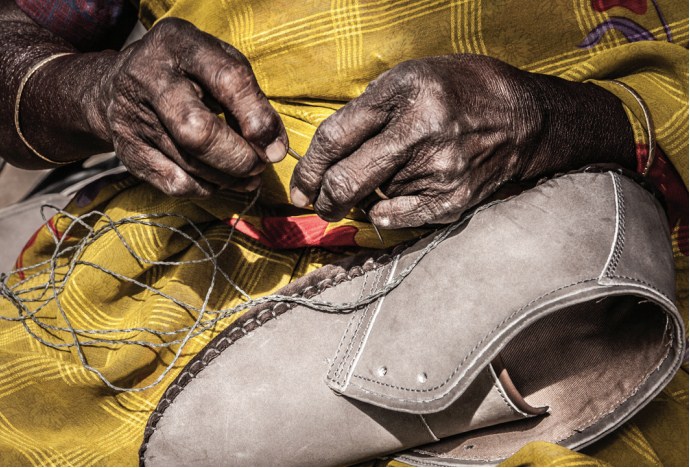Thousands of women work as homeworkers stitching leather shoes for export, in Ambur, South India. These women are largely invisible, not recognised or acknowledged as workers. They are excluded from legal protection, ignored by official statistics and often overlooked by trade unions, researchers and campaigners. Homeworkers have the lowest pay, in a sector that is already low-paid. Their employment is precarious, and they are denied employment benefits such as health insurance, pension contributions or health and safety protection. Yet these workers are not temporary workers, nor do they play a marginal role. The work they do is not artisanal or traditional, but integral to the modern production process of a wide range of styles and types of leather shoes sold by major western retailers and brands.
Homeworkers are not directly employed by the factories but get their supply of work from an intermediary, who in turn gets the work from a subcontractor of the main factory. For many, homeworking is the only employment option available to them, and provides an important source of income. Homeworkers interviewed for this report were earning less than 10 pence for a pair of shoes sold in the UK for between £40 and £100.
Cividep collaborated to produce this report jointly with Homeworkers Worldwide and Labour Behind the Label as part of the Change Your Shoes campaign.
Access the full report below.
Stitching our shoes: Homeworkers in India’s leather sector

